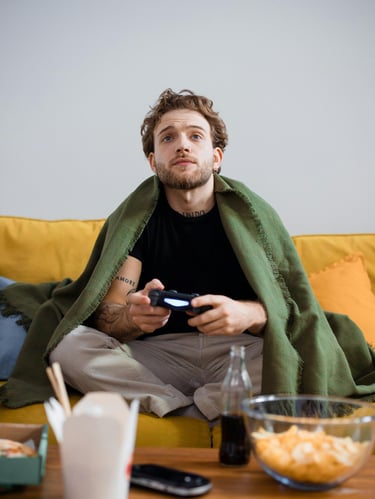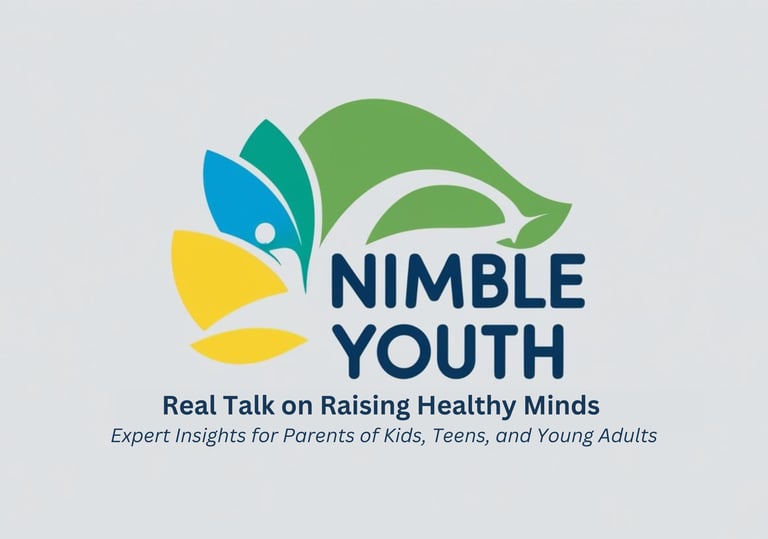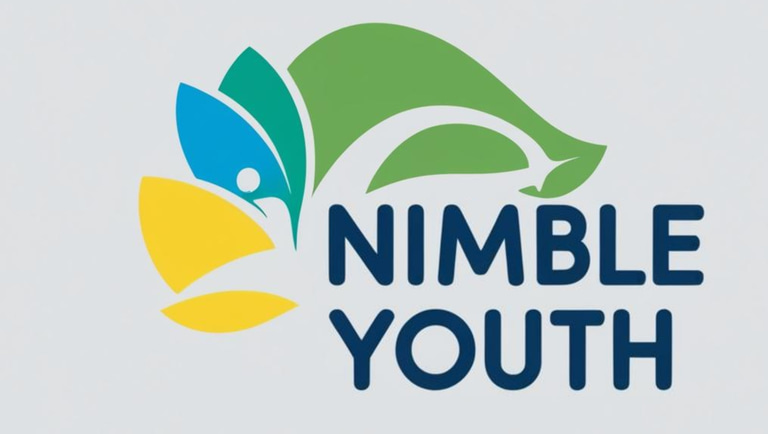Episode 23: Disconnected - Understanding NEET Youth and the Struggle to Launch
There's a growing phenomenon among young people known as NEETs — youth not in education, employment, or training. Often highly online, socially withdrawn, and anxious about adulthood, these young adults represent a rising and concerning pattern in pediatric and mental health care.
M. Butterman
10/9/20252 min read


🎧 Episode 23: “Disconnected: Understanding NEET Youth and the Struggle to Launch”
Guest: Dr. Gretchen Hoyle, MD, Pediatrician
Host: Matt Butterman
Length: ~35 minutes
Series: Nimble Youth Podcast
🌐 Episode Overview
In this episode of Nimble Youth, host Matt Butterman and returning guest Dr. Gretchen Hoyle explore a growing phenomenon among young people known as NEETs — youth not in education, employment, or training. Often highly online, socially withdrawn, and anxious about adulthood, these young adults represent a rising and concerning pattern in pediatric and mental health care.
Dr. Hoyle draws on her 25 years of clinical practice to describe who these young people are, why this trend has accelerated since the pandemic, and how families and providers can help them reengage with the embodied, real-world experiences that support mental well-being.
💡 Key Themes & Takeaways
1. What Is “NEET”?
Definition: Young adults (typically 18–24) not currently engaged in education, employment, or training.
Prevalence: Around 13% of young adults in the U.S. fell into this category in 2022, peaking at 15% during the pandemic.
Origins: Many NEET youth experienced disrupted schooling during COVID-19—and for some, relief from social anxiety or bullying made returning to in-person environments even harder.
2. The Digital Pull
These young adults are often deeply immersed in online worlds, maintaining virtual friendships while disconnecting from face-to-face interactions.
Sleep disruption is common, with reversed day-night cycles and declining motivation to engage offline.
This lifestyle can reinforce anxiety and depression, making re-entry into the real world increasingly daunting.
3. Who’s Most at Risk?
Dr. Hoyle identifies several vulnerable subgroups:
Neurodivergent youth, especially on the autism spectrum.
LGBTQ+ and gender-expansive teens, facing added social pressures.
Rural or lower-income youth with limited opportunities and support.
Youth in insular cultural or religious communities, who may have fewer external peer networks.
4. Pathways Back to Connection
Collaborative care is key — involving medical providers, behavioral health managers, and families.
Mental health support often starts with addressing underlying anxiety or depression through therapy, medication, or both.
Behavioral health coaches help break large, intimidating goals into small, achievable steps to reduce overwhelm and build confidence.
Progress is nonlinear — even small wins matter and deserve recognition.
5. Community Resources & Next Steps
Community colleges, Job Corps, AmeriCorps, and local workforce boards offer bridges back to education and employment.
Parents can help by shifting from pressure to partnership—asking, “What’s one small step you can take?” rather than “Why aren’t you doing this?”
Early intervention is best: start by consulting your pediatrician or family doctor to assess for mental health concerns.
🧭 For Parents: Key Takeaways
This pattern is increasingly common — you’re not alone.
Avoid panic. Change is possible through gradual re-engagement and support.
Seek professional help early to identify anxiety, depression, or neurodevelopmental challenges.
Celebrate small steps and maintain connection without control.
📘 Mentioned Resources
Job Corps – www.jobcorps.gov
AmeriCorps – www.americorps.gov
Local Workforce Development Boards (search by state)
The Anxious Generation by Jonathan Haidt (for context on digital influence and youth development)
🩺 Expert Insight
“Embodied experience is the best way for our brains to learn, to feel comfortable and happy, and to avoid symptoms of anxiety and depression.”
— Dr. Gretchen Hoyle
🎙️ Listen & Connect
🔗 Full episode available at Nimble Youth Podcast Website
📱 Follow us on Facebook & Instagram: @nimbleyouthpodcast
© 2025. All rights reserved.


